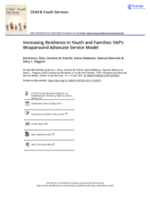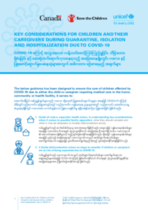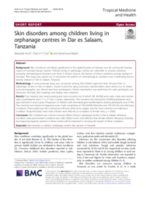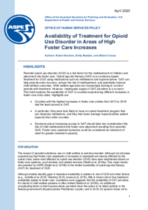Increasing Resilience in Youth and Families: YAP’s Wraparound Advocate Service Model
In this article, a team of practitioners explores the basis, implementation, research base, and future application of Youth Advocate Programs, Inc. (YAP)’s dual-prong service model in building resilience in youth and families in the U.S., providing comprehensive, community-based services as an alternative to institutionalization for youth and young adults with complex needs and challenges.





